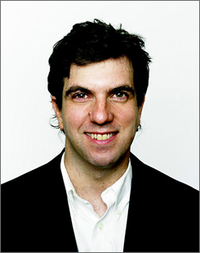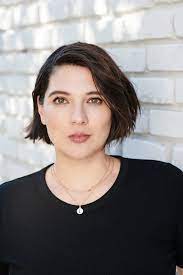I don’t remember how I discovered this series but it was over a decade ago that I started reading it. I’ve been through about one book a year and I’ve always enjoyed them. They’re also always good for knocking a time period off of my historical fiction challenge!

Cover Image via Amazon
Vita Brevis (Medicus Investigation #7) by Ruth Downie
Other books by Downie reviewed on this blog:
Terra Incognita (Medicus Investigation #2)
Persona Non Grata (Medicus Investigation #3)
Caveat Emptor (Medicus Investigation #4)
Semper Fidelis (Medicus Investigation #5)
Tabula Rasa (Medicus Investigation #6)
Summary from Amazon:
Ruso and Tilla and their new baby daughter have left Roman-occupied Britain for Rome, but their excitement at arriving in the city is soon dulled when they find that the grand facades of polished marble mask an underworld of corrupt landlords and vermin-infested tenements. There are also far too many doctors – some skilled, but others positively dangerous. Ruso takes on a reputable medical practice only to find that his predecessor, Doctor Kleitos, has fled, leaving a dead man in a barrel on the doorstep and the warning, “Be careful who you trust.” Distracted by the body and his efforts to help a friend win the hand of a rich young heiress, Ruso makes a grave mistake, causing him to question both his competence and his integrity. With Ruso’s reputation under threat, he and Tilla must protect their small family from Doctor Kleitos’s debt collectors and find allies in their new home while they track down the vanished doctor and find out the truth about the unfortunate man in the barrel.
This book started off fast with the body in the barrel right away which seemed a bit of a faster start than some of the other books. I was trying to figure out what the main mystery to be solved would be: the man in the barrel, the missing doctor, or a death that comes further into the book? That had me a bit more lost than I’m used to in these books which was my minor frustration. However, so many of the things I love were back and it was wonderful. We got to see Tilla in her role as a healer where she exceeds. We got to see Ruso navigating politics and local culture. We got the comedy of Downie’s writing that I absolutely love. And we got development between Ruso and Tilla that’s always so satisfying. This was a great add to the series though I’ll say I’m glad we’re heading back to Britannia.
Tilla’s experiences in Rome were really well highlighted. She is a foreigner in a place that’s not very welcoming to foreigners. Her compatriots are slaves or freed slaves so her status as a Roman citizen always seems to be questioned or overlooked. She’s trying to learn how to live in a new place and also be a mother without anyone around she can trust except her busy husband. I can’t imagine how stressful that would feel. Her anger and frustrations were well described and I could relate to how she felt living in a new home.
Ruso was my favorite character this time around. While relatable, Tilla’s role in the plot was more minor than I’m used to and I didn’t enjoy her journey through the story as much as I did Ruso’s. I thought he was very resourceful and clever in his investigation and I liked hearing about his struggles to establish himself as a doctor.

Ruth Downie
Image via the author’s website
I loved hearing about the neighbors Tilla and Ruso had in their building. The loud barmaid and the zealous Christians upstairs made for a great combination that made me laugh thinking of my time living in dorms and apartments. You can’t control your neighbors, only how you react to them. I thought Tilla and Ruso did well, considering they’d not had to live in that type of arrangement before.
I thought this book dragged a bit in the middle and I lost some of my interest. It was a bit unclear which of the mysterious happenings I was supposed to care most about and I got stretched a bit thin caring about them all. Getting development about each one made the middle feel slow and I found the book easy to put down for a few days at a time.
The audiobook was narrated by Simon Vance and he did an amazing job. I enjoy his voice for this series and I’ll be greatly disappointed if there’s ever a Ruso book without Vance. He delivers the dry humor of Downie’s writing in the perfect tone and it always helps me laugh. I’m not sure I’d find the books as funny without Vance’s delivery.
There were a lot of people in this book who were outsiders trying to join Roman society. Many people were former slaves whose fortunes had turned. It was interesting to see someone besides Tilla in that role after so many books of her being the only one. We are shown how those people are not consistently accepted in their new roles, as Tilla has experienced in many of these books. While Roman citizens, it’s hard to escape the story of who they were before they gained that monicer.
Writer’s Takeaway: I think Downie tried to do just a little too much in this book. Having too many subplots can make a middle feel like more of a slog than it should as all of them are developed. There were a lot of mysteries in this book and while they all wrapped up, I would have liked to see them peak and ebb at different times to keep the plot moving well along.
Enjoyable and funny, this book is a great addition to the series and I can’t wait to get to the next one. Three out of Five Stars.
This book fulfills the Pre 1200 time period of the When Are You Reading? 2024 Challenge.
Until next time, write on.
You can follow me on Goodreads, Facebook, Twitter, Pinterest, and Instagram. I’m available via email at SamAStevensWriter@gmail.com. And as always, feel free to leave a comment!
Some of the links on this post may be affiliate links. Taking on a World of Words is a participant in affiliate programs designed to provide a means for sites to earn advertising fees by linking to products. If you purchase a product or service through an affiliate link, your cost will be the same but Sam will automatically receive a small commission. Your support is greatly appreciated.
Related Post:
Vita Brevis | Lillabullero


















